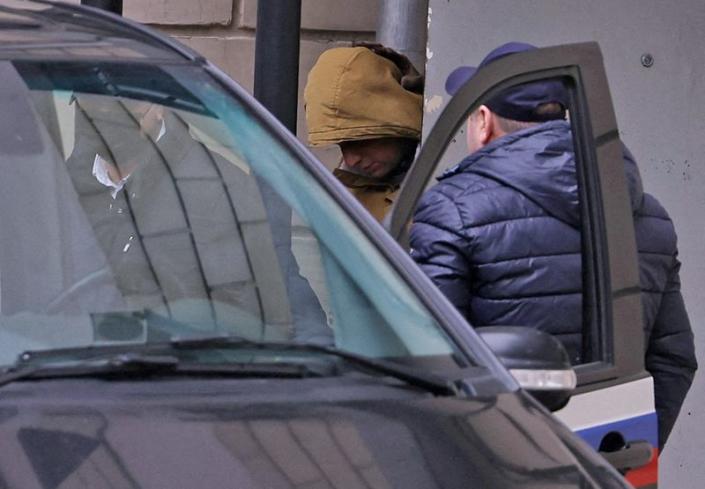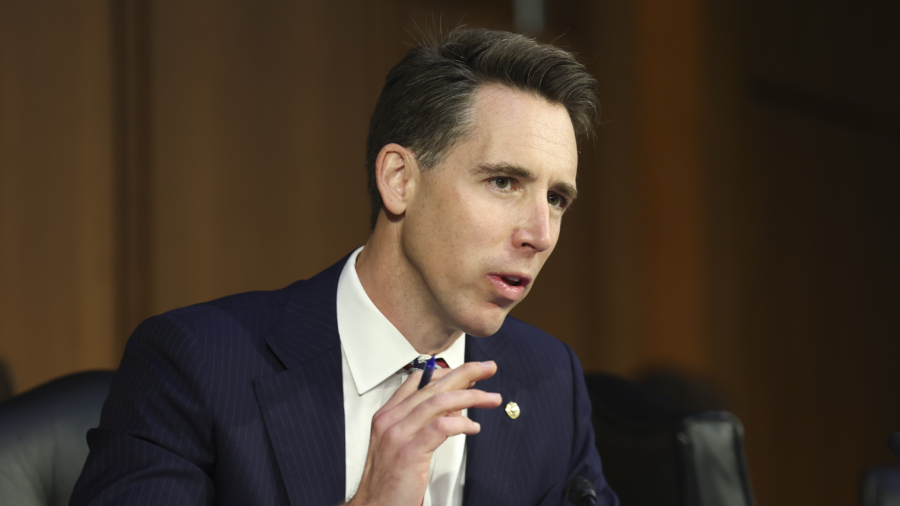WASHINGTON — The drama surrounding the trading in shares of GameStop, AMC Entertainment, Blackberry and other beaten-down companies has suddenly thrust Wall Street near the top of a crowded list of issues that President Joe Biden's regulatory team needs to tackle early in its term.
A number of wealthy institutions on Wall Street bet the stocks of these companies would fall, only to be thwarted by small investors who banded together on social media and sent the prices higher. Many of the small investors trade on online platforms such as Robinhood, which suddenly restricted the buying of shares of GameStop and other companies, sparking outrage from the social media crowd and politicians alike.
Biden's financial regulators — especially the Securities and Exchange Commission — will likely have to address questions about a number of Wall Street practices, such as short-selling and whether the business model of online trading platforms is as investor-friendly as the companies say it is. The airing of complex issues will come in addition to anticipated efforts by regulators at the SEC, the Consumer Financial Protection Bureau and other agencies to overturn Trump-era rules deemed more favourable to the financial industry than to consumers or retail investors.
Biden is naming as the new SEC chairman Gary Gensler, who set a record as a tough regulator heading the Commodity Futures Trading Commission during the financial crisis. The SEC took a deregulatory tilt under chair Jay Clayton, a former Wall Street lawyer appointed by President Donald Trump.
The GameStop saga has drawn expressions of outrage over Wall Street's treatment of the “little guy" from lawmakers from both parties. The populist strain recalls the anger fueling the Occupy Wall Street movement over the big bank bailouts that Congress brought in response to the financial crisis.
The uproar is occurring at a time when the small investor appears to be winning. Some prominent hedge funds are reeling with losses due to the collective efforts of the online community. At least two of them have closed out January's trading with losses of more than 40%, according to reports by The Wall Street Journal and Bloomberg News.
Even so, when Robinhood took the step of preventing investors from buying shares of GameStop and a dozen other companies last week, some in Washington immediately called for action by regulators. Robinhood said it acted to meet regulatory capital requirements. Politicians and critics said Robinhood changed the rules of the road midway through, in favour of Wall Street firms who were still able to trade these shares.
Both the Senate Banking Committee and the House Financial Services Committee plan to hold hearings on the GameStop controversy.
Rep. Brad Sherman, D-Calif., who heads the Financial Services subcommittee on investor protection, entrepreneurship and capital markets, said lawmakers will examine, for example, whether Robinhood may have blocked customers from buying the stocks at the behest of other market players with competing interests — who are also Robinhood clients.
Another issue to be aired is that of short-selling, where firms bet that a company's stock price will drop. Lawmakers could look at the need for fuller disclosure requirements for short sellers, as now prevail in Europe and Britain, Sherman suggested.
“There is a casino. To the extent there’s a casino, it ought to be fair,” he said in a telephone interview. “The capital markets need to be less of a casino and more of a place where people ... can invest in companies that are leading the new economy.”
Also under Washington’s microscope will be the business model of companies like Robinhood. At issue is the common practice in the securities markets of payment for order flow, in which Wall Street trading firms pay companies like Robinhood to send their customers' orders to those firms for execution.
In addition, much as Facebook and other tech giants provide users' personal data to online advertisers, platforms like Robinhood give the trading firms data on stocks its users are buying and selling.
Last year, Robinhood agreed to pay $65 to settle SEC charges of providing misleading or incomplete information on its order-flow payments, its largest revenue source.
The practice of firms like Robinhood lending money to customers to make trades, which can fuel trading frenzies by small investors, also will be scrutinized. Questions also will be raised on whether the SEC's existing rules on market manipulation are sufficient.
Wall Street brokerages, big banks and other financial companies were already expecting the Biden administration to be tougher on them than the Trump regime.
Regulators largely took a hands-off approach to the financial industry under the Trump administration, with some exceptions like Wells Fargo. Fines became a fraction of what they used to be, and rules and regulations designed to curtail abusive practices like payday lending or lending discrimination were repealed or significantly rolled back, to the dismay of consumer advocates.
There were already signs that Biden was planning to do more to look out for consumers. He fired Trump's head of the Consumer Financial Protection Bureau, Kathy Kraninger, and nominated consumer advocate Rohit Chopra to replace her.
Chopra, appointed by Trump to the Federal Trade Commission, was one of two Democrats on the five-member commission. While in the minority, Chopra used his perch to try to push the FTC to be more aggressive in going after bad behaviour , particularly in the technology industry.
"I think his purpose (as CFPB Director) will be two-fold: more deterrence and to make consumers whole,” said Ori Lev, a partner at Mayer Brown and a former official at the CFPB.
“I think the people the president has nominated ... will have a more pro-consumer attitude, and a bit more antagonistic toward Wall Street,” said Sen. Sherrod Brown, D-Ohio, who is set to become chairman of the Senate Banking Committee.
____
Sweet reported from Charlotte










